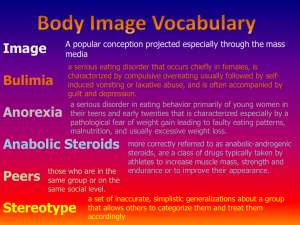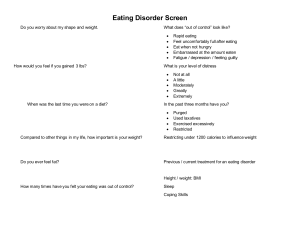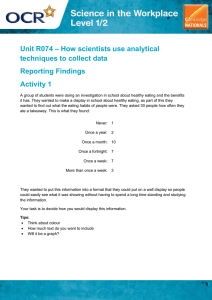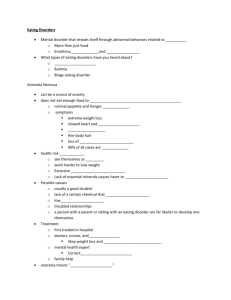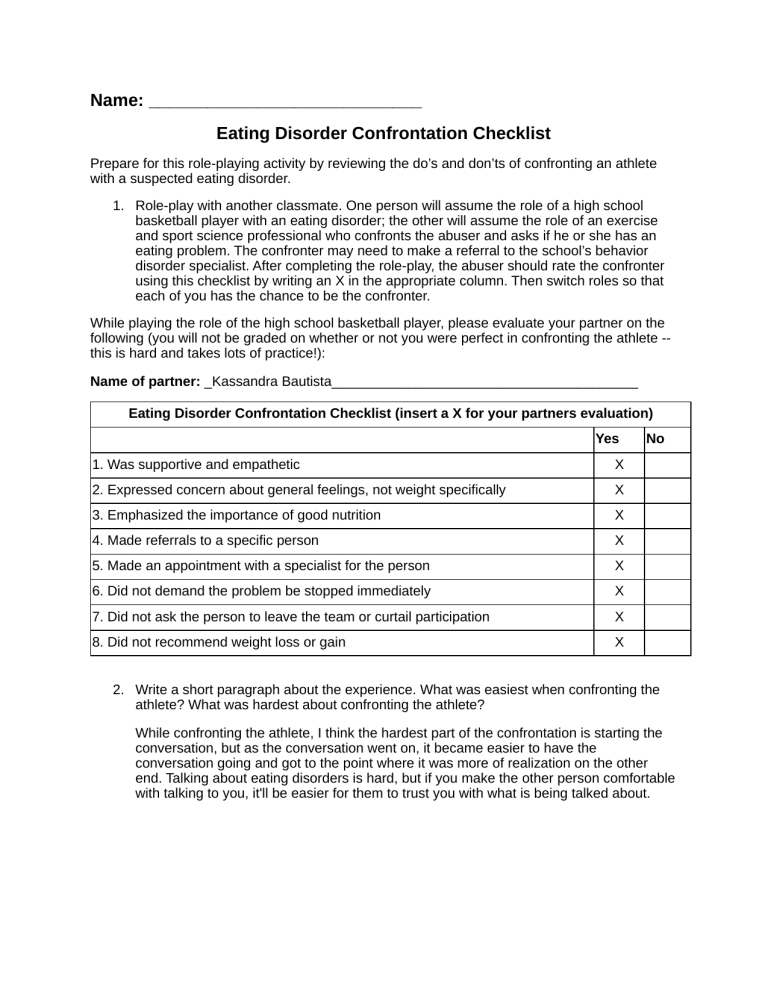
Name: ____________________________ Eating Disorder Confrontation Checklist Prepare for this role-playing activity by reviewing the do’s and don’ts of confronting an athlete with a suspected eating disorder. 1. Role-play with another classmate. One person will assume the role of a high school basketball player with an eating disorder; the other will assume the role of an exercise and sport science professional who confronts the abuser and asks if he or she has an eating problem. The confronter may need to make a referral to the school’s behavior disorder specialist. After completing the role-play, the abuser should rate the confronter using this checklist by writing an X in the appropriate column. Then switch roles so that each of you has the chance to be the confronter. While playing the role of the high school basketball player, please evaluate your partner on the following (you will not be graded on whether or not you were perfect in confronting the athlete -this is hard and takes lots of practice!): Name of partner: _Kassandra Bautista________________________________________ Eating Disorder Confrontation Checklist (insert a X for your partners evaluation) Yes 1. Was supportive and empathetic X 2. Expressed concern about general feelings, not weight specifically X 3. Emphasized the importance of good nutrition X 4. Made referrals to a specific person X 5. Made an appointment with a specialist for the person X 6. Did not demand the problem be stopped immediately X 7. Did not ask the person to leave the team or curtail participation X 8. Did not recommend weight loss or gain X No 2. Write a short paragraph about the experience. What was easiest when confronting the athlete? What was hardest about confronting the athlete? While confronting the athlete, I think the hardest part of the confrontation is starting the conversation, but as the conversation went on, it became easier to have the conversation going and got to the point where it was more of realization on the other end. Talking about eating disorders is hard, but if you make the other person comfortable with talking to you, it'll be easier for them to trust you with what is being talked about. Keep the guidelines listed in this Eating Disorder Confrontation Checklist in mind when you confront someone who possibly has an eating disorder. Remember to be supportive, keep all information confidential, and refer the person to a specific clinic or specialist.
